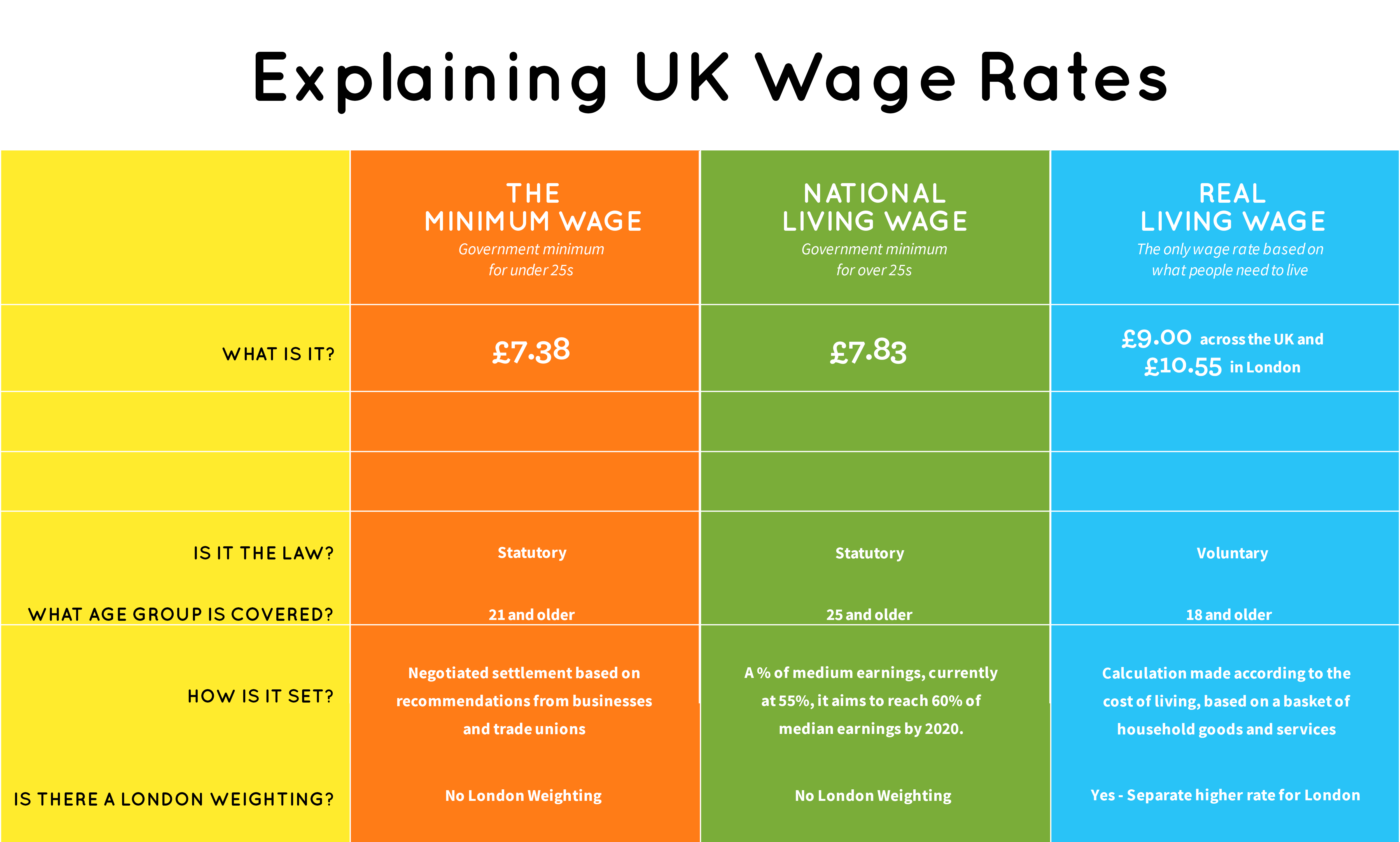LIVING WAGE RISES PROVIDE A FAIR DAY’S PAY FOR A FAIR DAY’S WORK

A fair day’s pay for a fair day’s work – why the ‘real’ Living Wage of £9 provides maximum benefits.
Today’s announcement from the Living Wage Foundation may only currently affect a few thousand firms, and yet the Foundation could provide the Government’s Low Pay Commission with the answers they are looking for when trying to meet their “aspiration to end low pay”, as set out by Chancellor Philip Hammond in last week’s Budget.
While the Chancellor announced last week that the National Living Wage will increase to £8.21 an hour in April 2019, this new rate only applies to over-25s.

There are four lower wages incorporating other wage brackets – from £7.70 an hour for 21 to 24 year olds down to just £3.90 per hour for apprentices. Speaking with AAT members, over half would like to see these five rates replaced with a single, one-size fits all minimum wage.
The £9 Living Wage is set independently and calculated annually, according to the basic cost of living using the UK’s ‘Minimum Income Standard’.
While those employers, including AAT, who have Living Wage Foundation accreditation are going above and beyond their legal requirements by paying the Living Wage, it sets a strong tone – not only to employees but to customers, suppliers and other stakeholders.
With a third of AAT’s student population being aged under 25 and with over 10,000 studying apprenticeship schemes, we support the National Union of Student’s description of the apprenticeship wage as “exploitative” and believe they should also receive the standard minimum wage.
All businesses, large and small, should consider signing up to the Living Wage to help eradicate low pay and act to the benefit of students, apprentices, small business owners, skilled workers and many other employees.
Adam Williamson, Head of Professional Standards, AAT (Association of Accounting Technicians)
About AAT (Association of Accounting Technicians): The UK’s leading qualification and professional body for technical accountants and bookkeepers, and has around 130,000 members in over 100 countries. We offer a range of qualifications that are open to all regardless of previous education or age, such as the AAT Accounting Qualifications that provide a non-degree route into chartered accountancy, and the AAT Bookkeeping Qualifications that can support business growth through accurate and up-to-date financial records. Students encompass a wide range from school and college leavers, to older people hoping to change their career or learn the skills to run their own business.











Responses